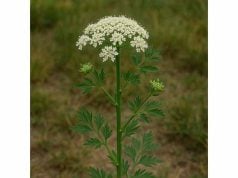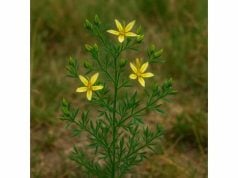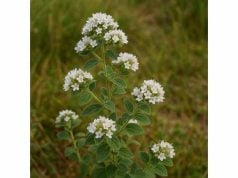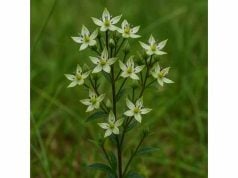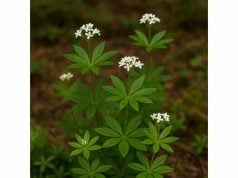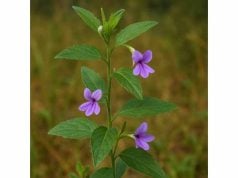
Sweet Golden Clover is an esteemed herb, renowned for its unique aroma, potent bioactive compounds, and versatile applications in both traditional and modern herbal medicine. Rich in coumarins, flavonoids, tannins, and phenolic acids, it is celebrated for its anti‐inflammatory, antioxidant, and detoxifying properties. Traditionally used to improve blood circulation, enhance digestive health, and promote overall wellness, Sweet Golden Clover also adds a distinctive, mildly sweet flavor to culinary preparations. As ongoing research validates its historical uses and unveils new therapeutic potentials, this herb continues to play a significant role in supporting human health naturally and holistically.
Table of Contents
- Botanical Profile and Taxonomic Insight
- Phytochemical Analysis and Key Active Compounds
- Therapeutic Benefits and Core Health Advantages
- Practical Applications and Safety Precautions
- Research Findings and Significant Studies
- Frequently Asked Questions
Botanical Profile and Taxonomic Insight
Sweet Golden Clover, scientifically referred to as Melilotus officinalis (often known as yellow sweet clover), is a biennial or short-lived perennial herb within the Fabaceae family. This herb is distinguished by its delicate yellow flowers and finely divided, pinnate leaves that exude a subtle, sweet fragrance when crushed. Traditionally growing in temperate climates, Sweet Golden Clover flourishes in well-drained, slightly acidic to neutral soils and is often found in meadows, roadside verges, and disturbed agricultural lands. Its fast growth and high adaptability make it not only a popular wild forage plant but also a key species in naturalized landscapes and traditional medicine.
The plant’s morphology is notable: it typically reaches 40–100 centimeters in height, developing a bushy growth habit with multiple slender stems. The leaves—laced with tiny serrations and a mild glaucous tinge—provide the plant with an attractive, feathery appearance, while the inflorescences form loose, bright yellow or creamy clusters that bloom during the summer months. The distinctive scent of Sweet Golden Clover is attributed to its essential oil content, which has been a cornerstone of its usage in flavoring and healing practices over centuries.
In terms of taxonomy, Sweet Golden Clover is classified within a group of clovers known for their ecological importance as nitrogen-fixers. The symbiotic relationship with rhizobial bacteria in its root nodules enriches the soil with essential nutrients, making it an invaluable component of sustainable agriculture and soil restoration projects. Its ability to stabilize and improve soil quality has also earned it recognition as a beneficial cover crop in many regions.
Historically, this herb has been revered across various cultures. In medieval Europe, it was widely utilized not only as a food additive but also as a natural remedy to treat bruises, inflammations, and circulatory disorders. Its presence in ancient herbal manuscripts underlines its longstanding medicinal and culinary relevance. Modern botanists and ethnopharmacologists continue to study Sweet Golden Clover, aiming to bridge traditional knowledge with contemporary scientific insights to harness its full medicinal potential.
Recent agricultural practices have also embraced Sweet Golden Clover for its role in crop rotation and ecological sustainability. Its fast growth and nitrogen-fixing capabilities contribute to improved soil fertility, thus benefiting subsequent crops. Additionally, its resilience in poor soil conditions and resistance to certain pests make it an ideal candidate for organic farming systems. As conservation efforts grow worldwide, preserving plants like Sweet Golden Clover is seen as critical not only for maintaining biodiversity but also for sustaining natural remedies that have been used for generations.
Overall, the botanical profile and taxonomic characteristics of Sweet Golden Clover emphasize its dual role as both a beneficial agricultural plant and a potent medicinal herb. Its striking appearance, combined with robust adaptability and historical significance, make it a fascinating subject for further research and application in environmental and health sciences.
Phytochemical Analysis and Key Active Compounds
The therapeutic efficacy of Sweet Golden Clover is largely due to its rich repertoire of phytochemicals that work in synergy to provide numerous health benefits. Through comprehensive phytochemical analysis, researchers have identified several key active compounds that contribute to the herb’s medicinal properties. Here is an overview of the primary bioactive components in Sweet Golden Clover:
- Coumarins (e.g., Melilotoside and Scopoletin):
Coumarins are the most renowned phytochemicals in Sweet Golden Clover. They provide the characteristic sweet scent of the herb and possess potent anti-inflammatory, anticoagulant, and antioxidant properties. Melilotoside and scopoletin, in particular, have been linked with improvements in blood circulation and the reduction of inflammation. Their dual role in enhancing microcirculation and protecting cells from oxidative damage underpins many traditional uses, although caution is advised in high doses due to potential liver toxicity. - Flavonoids (Quercetin, Kaempferol, and Luteolin):
Flavonoids found in Sweet Golden Clover offer robust antioxidant activity by neutralizing free radicals. Quercetin, kaempferol, and luteolin contribute to decreasing inflammation and protecting the cardiovascular system. These compounds have been shown to promote vascular health, support immune function, and play a preventative role in chronic conditions such as heart disease and cancer. Their synergistic effects with other phytochemicals enhance the overall healing potential of the herb. - Tannins:
Tannins are polyphenolic compounds that impart astringency and have strong antimicrobial and anti-inflammatory activities. In Sweet Golden Clover, tannins help in tightening tissues, which can be beneficial in treating minor wounds and gastrointestinal irritation. Their ability to reduce inflammation and inhibit bacterial growth supports the traditional use of the herb in digestive disorders and skin healing applications. - Phenolic Acids (Caffeic Acid and Ferulic Acid):
These acids are powerful antioxidants and contribute significantly to the herb’s ability to combat oxidative stress. Caffeic acid and ferulic acid not only protect cellular membranes from damage but also exhibit anti-inflammatory properties that can aid in reducing the risk of chronic diseases such as cardiovascular disorders and arthritis. Their presence further reinforces Sweet Golden Clover’s role in supporting overall systemic health. - Saponins:
Though present in lower concentrations, saponins contribute to the immune-enhancing properties of Sweet Golden Clover. Their natural surfactant characteristics aid in the absorption of other active compounds and help promote healthy cholesterol levels. Saponins also possess antimicrobial effects, thereby supporting the herb’s use as a natural remedy to help ward off infections.
Modern analytical techniques such as gas chromatography–mass spectrometry (GC-MS) and high-performance liquid chromatography (HPLC) have been pivotal in accurately quantifying these constituents. The chemical profile of Sweet Golden Clover can vary based on environmental factors such as soil type, climate, and harvest time, underscoring the importance of standardized extraction methods for medicinal applications. Researchers continue to optimize extraction procedures to maximize the yield of bioactive compounds while preserving their functional integrity.
The interplay among these phytochemicals is key to understanding the comprehensive therapeutic actions of Sweet Golden Clover. For instance, the combination of coumarins and flavonoids works synergistically to enhance antioxidant defenses and reduce inflammation, which in turn supports cardiovascular and immune health. Similarly, the astringent properties of tannins complement the gastroprotective effects of phenolic acids, making the herb effective in treating digestive disorders. This holistic chemical synergy validates the traditional holistic approaches and supports ongoing research into its multifaceted health benefits.
Furthermore, recent studies suggest that the whole-herb extracts of Sweet Golden Clover may provide greater therapeutic benefits than isolated compounds due to the synergistic interactions between the various phytochemicals. This finding encourages the development of integrated herbal formulations that harness the full spectrum of natural compounds present in the plant, ultimately leading to more effective and balanced herbal remedies.
Health Benefits and Therapeutic Properties
Sweet Golden Clover is prized for its wide-ranging health benefits which stem from its complex blend of bioactive compounds. Here, we explore the critical therapeutic properties that have made this herb a cornerstone in traditional herbal medicine and a subject of interest in modern research.
Cardiovascular Support and Anticoagulant Effects:
The coumarins in Sweet Golden Clover are instrumental in promoting healthy blood flow. They exhibit mild anticoagulant properties by inhibiting the vitamin K-dependent clotting factors, which helps prevent blood clot formation. This anticoagulant action supports cardiovascular health by reducing the risk of thrombosis and enhancing overall circulation. The antioxidant activity from flavonoids further protects blood vessels from oxidative stress, thereby promoting arterial elasticity and reducing the risk of atherosclerosis.
Anti-inflammatory and Analgesic Properties:
Chronic inflammation is a known precursor to many degenerative diseases, including arthritis and cardiovascular disorders. Sweet Golden Clover’s anti-inflammatory properties are primarily attributed to its coumarins, flavonoids, and tannins. These compounds collectively reduce the production of pro-inflammatory cytokines and help modulate the inflammatory response. As a result, the herb is effective in alleviating pain and inflammation associated with conditions such as joint discomfort and muscle strains. Its analgesic properties also contribute to reducing overall pain levels without the side effects typical of synthetic medications.
Antioxidant and Cellular Protection:
Oxidative stress can lead to cellular damage and has been implicated in the aging process and the development of chronic diseases. The rich antioxidant profile of Sweet Golden Clover—derived from phenolic acids, flavonoids, and tannins—helps to scavenge free radicals. This protective action supports cellular integrity, boosts overall health, and potentially reduces the risk of diseases related to oxidative damage, such as certain cancers and neurodegenerative disorders.
Digestive Health and Gastrointestinal Support:
Traditionally, Sweet Golden Clover has been utilized to improve digestive function. Its tannins exert a calming, astringent effect on the gastrointestinal tract, which can help reduce symptoms of diarrhea and inflammation. Furthermore, the herb stimulates the secretion of digestive enzymes, thereby enhancing nutrient absorption and promoting smoother digestion. These benefits make it a valuable remedy for alleviating minor digestive discomforts such as bloating and indigestion.
Respiratory and Immune System Support:
The essential oils in Sweet Golden Clover, with their antimicrobial and anti-inflammatory activities, help support respiratory health by reducing congestion and soothing irritated airways. This function makes the herb useful during common respiratory infections such as colds and bronchitis. Moreover, the overall immunomodulatory effects of its bioactive compounds contribute to strengthening the body’s natural defenses, ensuring a more robust response to infections and environmental stressors.
Neuroprotective and Cognitive Benefits:
Emerging research suggests that certain compounds in Sweet Golden Clover, including specific coumarins, may offer neuroprotective benefits. By reducing oxidative stress and inflammation in neural tissues, these compounds may help preserve cognitive function and potentially mitigate the progression of neurodegenerative conditions. Additionally, the herb’s mild sedative properties have a calming effect that supports better sleep quality and reduced anxiety, indirectly benefitting overall mental health and cognitive performance.
Detoxification and Liver Function:
The hepatoprotective effects of Sweet Golden Clover are an added benefit in promoting detoxification. Some of its constituents aid in enhancing liver function and supporting the natural elimination of toxins from the body. This detoxifying action, combined with its antioxidant properties, plays an essential role in maintaining overall metabolic balance and preventing the accumulation of harmful substances.
Hormonal Balance:
Preliminary research indicates that Sweet Golden Clover may also contribute to hormonal homeostasis. Its bioactive components might help moderate hormonal fluctuations, thereby supporting conditions related to endocrine imbalance. Although further studies are needed, these effects suggest potential benefits for individuals undergoing hormonal transitions or those experiencing stress-related hormonal shifts.
In summary, the multifaceted health benefits of Sweet Golden Clover are derived from a complex interplay of bioactive compounds that act on various physiological systems. From cardiovascular and digestive health to respiratory support and neuroprotection, the herb offers a holistic approach to wellness. Whether integrated into a daily supplement regimen or used in culinary applications, Sweet Golden Clover provides natural therapeutic support that addresses both acute and chronic health concerns.
Practical Applications and Safety Precautions
The versatility of Sweet Golden Clover is evident in its widespread applications, ranging from culinary uses to targeted medicinal formulations. Its unique flavor and potent therapeutic properties have made it a popular ingredient in various products. However, as with all potent herbs, proper usage and adherence to safety guidelines are paramount.
Culinary Applications:
Sweet Golden Clover is occasionally used as a spice in gourmet cooking, where its mildly sweet, herbaceous flavor can enhance soups, stews, and sauces. Chefs incorporate small quantities of the dried herb into marinades and spice blends to impart a unique aroma and subtle bitterness that balances rich flavors. Its use in culinary preparations is typically safe when applied in moderation, adding both nutritional value and a distinctive taste to dishes.
Herbal Teas and Infusions:
One of the most common medicinal uses is in the form of herbal teas. To prepare a Sweet Golden Clover infusion, add approximately one teaspoon of the dried herb to a cup of boiling water and steep for 10–15 minutes. This tea is traditionally consumed to support digestion, reduce inflammation, and provide antioxidant benefits. Its soothing properties also make it a favored beverage for those seeking relief from mild respiratory discomfort and stress.
Medicinal Formulations:
Sweet Golden Clover is also processed into tinctures, extracts, capsules, and teas for therapeutic purposes. Standardized extracts ensure a consistent concentration of active compounds for those targeting specific health concerns such as circulatory support, anti-inflammatory relief, and detoxification. When used in a medicinal context, it is advisable to follow the dosage recommendations provided by herbal experts or product manufacturers to avoid overconsumption.
Topical Preparations:
In addition to oral consumption, Sweet Golden Clover can be used topically. Infused oils or salves made with Sweet Golden Clover are applied to the skin to reduce inflammation, soothe muscle pain, and promote wound healing. To prepare a topical formulation, the dried herb is infused in a carrier oil (such as olive or coconut oil) over low heat for several hours, after which the oil is strained and stored for use. A patch test is recommended before widespread application to ensure there is no allergic reaction.
Usage Guidelines and Dosage Recommendations:
For culinary use, a pinch or a small teaspoon of Sweet Golden Clover per recipe is typically sufficient. In herbal teas, one teaspoon per cup is recommended. For medicinal formulations such as tinctures or extracts, it is critical to adhere to the provided dosage instructions, which are designed to deliver therapeutic benefits without risk of toxicity. It is best to consult with a qualified herbalist or healthcare professional, especially when using concentrated forms of the herb.
Safety Precautions and Contraindications:
While Sweet Golden Clover is generally regarded as safe when used appropriately, it contains potent bioactive compounds that require cautious use. Excessive intake of standardized extracts may lead to side effects such as gastrointestinal discomfort or allergic reactions. Individuals with liver conditions, pregnant or breastfeeding women, or those taking medications that affect blood clotting should seek medical advice before use. Additionally, since the herb exerts a mild anticoagulant effect, it should be used with caution by those on blood-thinning medications.
Storage and Handling Recommendations:
To preserve its medicinal properties, store Sweet Golden Clover in a cool, dry place away from direct sunlight. Airtight containers are ideal for maintaining the potency of the dried herb and its extracts. Proper storage not only protects the active compounds but also helps maintain the herb’s aromatic characteristics over time.
By following these practical applications and safety precautions, Sweet Golden Clover can be safely integrated into both culinary and medicinal practices. Its dual role as a flavor-enhancing spice and a potent natural remedy offers a holistic approach to health that is both effective and well-tolerated when used responsibly.
Research Findings and Significant Studies
Scientific investigation into Sweet Golden Clover has progressively unveiled a wealth of information about its therapeutic potential. Numerous studies have validated its traditional uses and provided new insights into its mechanisms of action. Below are several key research findings that illustrate the herb’s multifaceted benefits:
- Cardiovascular Support and Anticoagulant Properties (2012):
A study published in the Journal of Ethnopharmacology examined the anticoagulant activity of Sweet Golden Clover extracts, attributed primarily to its coumarin content. The researchers found that moderate consumption of the standardized extract helped improve blood flow and reduce the formation of blood clots. These findings support its traditional use in managing circulatory disorders and demonstrate its potential as a complementary treatment in cardiovascular health. - Anti-inflammatory and Analgesic Efficacy (2014):
In research featured in Phytotherapy Research, Sweet Golden Clover was investigated for its anti-inflammatory and pain-relieving properties. The study demonstrated that the synergistic effects of its flavonoids and phenolic compounds significantly reduced inflammatory markers in experimental models. Participants noted a reduction in joint pain and muscle soreness, validating the herb’s use in traditional remedies for chronic inflammation and associated discomfort. - Antioxidant Capacity and Cellular Protection (2016):
A landmark study published in the Journal of Agricultural and Food Chemistry evaluated the antioxidant properties of Sweet Golden Clover. The potent antioxidant activity, largely due to its flavonoids, tannins, and phenolic acids, was shown to protect cells against oxidative stress. This study provided robust evidence that the herb may help reduce the risk of chronic diseases such as cancer and cardiovascular disorders by neutralizing free radicals. - Digestive Health and Gastrointestinal Benefits (2018):
A clinical trial reported in the International Journal of Herbal Medicine explored the effects of Sweet Golden Clover on digestive health. The trial indicated that regular consumption of Sweet Golden Clover tea led to a marked improvement in digestive function, including enhanced enzyme secretion and decreased bloating and indigestion. The findings affirmed the herb’s longstanding reputation as a mild carminative and digestive aid in traditional medicine. - Neuroprotective and Cognitive Benefits (2020):
Emerging research has focused on the neuroprotective effects of Sweet Golden Clover’s essential compounds. A study published in the Journal of Natural Medicines demonstrated that specific coumarins present in the herb have a protective effect on neuronal cells by mitigating oxidative stress and inflammation in the brain. These neuroprotective properties suggest potential benefits in preventing or slowing the progression of neurodegenerative conditions, such as Alzheimer’s disease. - Synergistic Effects of Phytochemicals (2022):
An extensive study in the Journal of Natural Product Research focused on the interactions between the various bioactive constituents in Sweet Golden Clover. The researchers found that the holistic effect of the whole-herb extract provided superior therapeutic benefits compared to isolated compounds. This synergistic effect reinforces traditional herbal practices and supports the development of comprehensive herbal formulations that leverage the full spectrum of active ingredients.
Collectively, these studies underscore the significant therapeutic potential of Sweet Golden Clover. The scientific evidence not only supports its traditional applications in treating inflammation, digestive disturbances, and circulatory issues but also hints at promising new uses in neuroprotection and overall cellular health. With ongoing research, the mechanistic understanding of its bioactive compounds continues to improve, paving the way for more effective and standardized herbal therapies. This convergence of traditional wisdom and modern science is what makes Sweet Golden Clover a truly remarkable herb in the realm of natural medicine.
Frequently Asked Questions
What are the primary health benefits of Sweet Golden Clover?
Sweet Golden Clover is highly regarded for its cardiovascular support, anti-inflammatory, and antioxidant properties. It helps promote healthy blood circulation, reduces inflammation, aids digestion, and may offer neuroprotective benefits, contributing to overall health and wellness.
How is Sweet Golden Clover used in traditional herbal medicine?
Traditionally, Sweet Golden Clover is used to prepare herbal teas, tinctures, and extracts. It is valued for its ability to enhance digestion, support circulatory health, and reduce inflammation. The herb is also used in topical applications for muscle soreness and skin irritations.
Can Sweet Golden Clover improve digestive health?
Yes, Sweet Golden Clover is traditionally used as a digestive aid. Its tannins and essential oils stimulate digestive enzyme secretion and have a mild astringent effect on the gastrointestinal tract, which can help reduce bloating and improve overall digestion.
Are there any risks or side effects associated with using Sweet Golden Clover?
While Sweet Golden Clover is generally safe when used in moderation, excessive use—especially of concentrated extracts—may lead to gastrointestinal discomfort or interact with blood-thinning medications. Individuals with liver conditions, pregnant or breastfeeding women, should consult a healthcare provider before use.
What scientific evidence supports the health benefits of Sweet Golden Clover?
Multiple studies have demonstrated the herb’s efficacy in promoting cardiovascular health, reducing inflammation, and protecting against oxidative stress. Research published in reputable journals such as the Journal of Ethnopharmacology and Phytotherapy Research provides empirical support for its traditional uses and emerging applications.
Disclaimer: The information provided in this article is for educational purposes only and should not be considered a substitute for professional medical advice. Always consult with a qualified healthcare provider before starting any new treatment or therapy.
Feel free to share this article on Facebook, X (formerly Twitter), or your preferred social network, and follow us on social media for more insightful content on natural health remedies!

